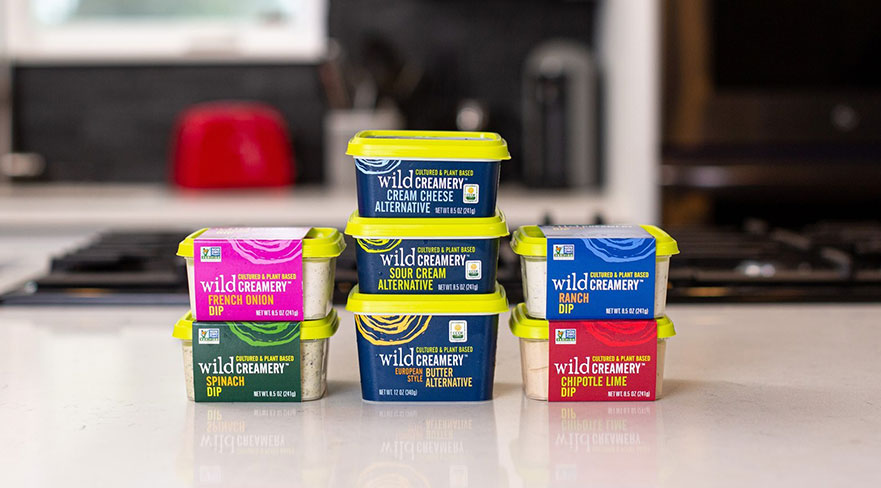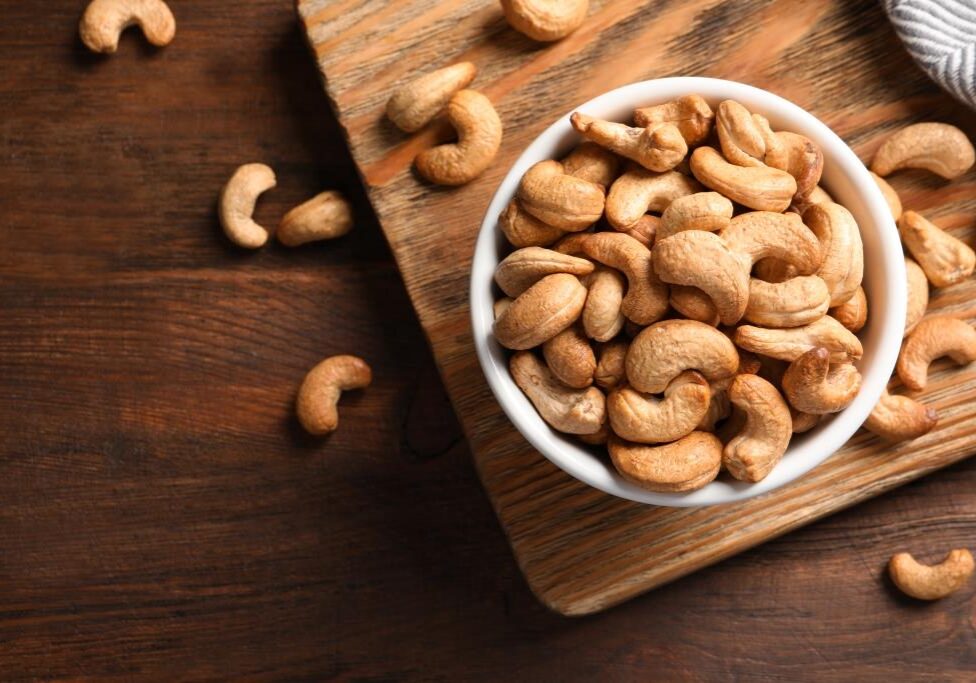Be honest now—how often do you eat a handful of cashews and get the multitude of health benefits that those tasty nuggets of goodness provide?
Maybe once in a while, if at all? Well, we at wildbrine offer you seven easy and delicious ways to add more cashews to your diet. Just take a minute to visit our online creamery, where you can peruse our seven plant-based dips and dairy products. There you’ll find dairy-free Chipotle-Lime, French Onion, Ranch, and Spinach dips, along with plant-based butter, cream cheese, and sour cream alternatives.
Our plant-based products rely on cashews to substitute for milk-based dairy. Cashews have an amazing ability, when soaked and puréed, to make a smooth, rich, creamy product perfect for vegetarians, vegans, folks allergic to dairy, and people who love good taste without all the saturated fat that comes with dairy cream and butter.
Let’s Talk About the Health Benefits of Cashews
One ounce of cashews—that’s 28 grams—contains 12 grams of monounsaturated and polyunsaturated fats that have a protective effect on the cardiovascular system’s arteries, and vanishingly small amounts of saturated fat and trans-fatty acids. One study showed that people with type 2 diabetes who had 10 percent of their daily calories from cashews had a lower LDL (the good cholesterol) to HDL (the unhealthy cholesterol) ratio than did patients who ate no cashews at all.
But that’s just the beginning of the nutritional payload in an ounce of cashews. We start with “raw” cashews, rather than the oil-roasted and heavily salted cashews often sold in stores. Raw cashews have been heat-treated to deactivate a toxin found in truly raw cashews, and they’re perfectly safe to eat. They’re raw in the sense that they haven’t been roasted and salted.
Let’s enumerate the health benefits of cashews, starting with the nutrients. One ounce of raw nuts contains just 157 calories, so they are a food you can use in any diet. Of the 28 grams in an ounce, 12 grams are healthful fats. Also, five grams are pure protein, almost as much as in cooked meats. About nine grams are carbohydrates—the energy source for your cells. And there’s a gram or two of soluble fiber, the favorite food of your microbiome—the healthful bacteria we provide in our creamery products and in wildbrine’s fermented foods.
We’re still just getting started with cashew’s health benefits. That one ounce gives you 69 percent of your daily need for copper. Copper is an often-overlooked nutrient in the diet, but it’s essential for cellular energy production, healthy brain development, a strong immune system, and bone health. Copper also regulates the production of collagen and elastin, two proteins that aid skin elasticity and health.
In 28 grams, you also get 20 percent of your daily need for magnesium and manganese, 15 percent of your zinc, 13 percent of your phosphorus, 11 percent of your iron, 10 percent of your selenium and thiamine, 8 percent of vitamin K, and 7 percent of vitamin B6.

That iron, when ingested with a daily 75-100 mg. of vitamin C, can prevent anemia. Cashews also contain lutein and zeaxanthin that support eye health. These nuts (actually they’re scientifically classified as seeds, but we all think of them as nuts) are rich in polyphenols and carotenoids, two powerful antioxidants that reduce cell damage from free oxygen radicals. As you might know, when free oxygen atoms hook up with other substances, that’s called burning, and that’s what happens when free oxygen roams your bloodstream, looking to bond with your cells. Antioxidants prevent that by bonding with oxygen before the oxygen can do any damage.
Because cashews are so snacky, even a handful can reduce hunger and that could help achieve weight loss. In addition, they’ve been linked to improved blood sugar control and heart health by lowering blood pressure and the amount of triglycerides and HDL cholesterol in the blood.
As a member of the anacardiaceae (ana-car-DACE-ee-aye) family, which includes cashews, mangoes, Peruvian peppers, pistachios, sumac, poison ivy, and poison oak, it contains anacardic acid, which acts as an antioxidant and reportedly curbs the growth of cancer cells.
As if this all weren’t enough, cashews are just plain delicious, with a sweet flavor, satisfying crunch, and buttery texture. We combine them with other plant-based ingredients and our lactobacillus ferment cultures to provide you with a luscious array of dips and dairy substitutes. We’re proud of our wildCREAMERY products, not only because they’re delicious, but also because of the health benefits they lavish on you, our customers. And on us, because we eat them, too.
About the Author: Sonoma County resident Jeff Cox is the author of 24 books, including The Essential Book of Fermentation (Avery, 2013)
